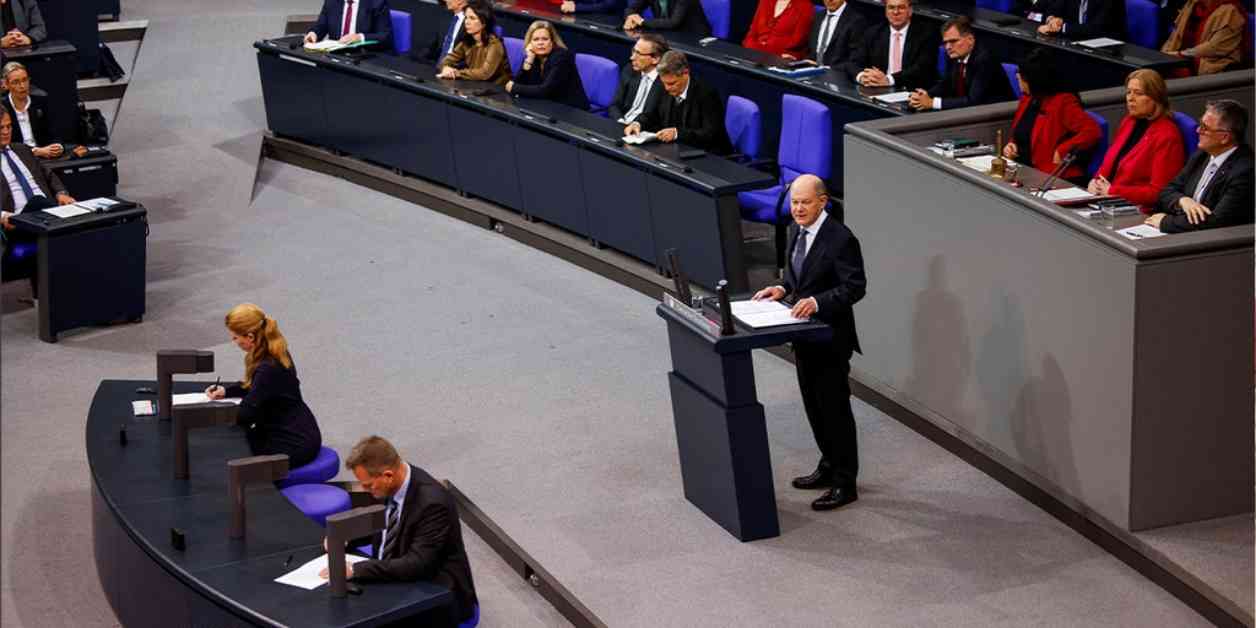Olaf Scholz’s Government Collapses, Early Election Set
German Chancellor Olaf Scholz faced a significant blow on Monday as the German parliament voted to withdraw its confidence in him and his government. This move paves the way for an early election on Feb. 23, following the collapse of Scholz’s three-party coalition last month. The coalition fell apart after the pro-market Free Democrats resigned in a dispute over debt, leaving the Social Democrats and the Greens without a parliamentary majority at a critical time when Germany is grappling with a deepening economic crisis.
President Frank-Walter Steinmeier is now in a position to dissolve parliament and call for an election, a decision triggered by Scholz’s loss of confidence vote. Scholz, who has been serving as Chancellor since 2021, faced criticism from various party leaders during the debate preceding the vote. The campaign for the upcoming election has already begun, as tensions rise between Scholz and his conservative challenger, Friedrich Merz.
Head-to-Head: Scholz vs. Merz
Scholz, who will head a caretaker government until a new one is formed, defended his leadership during times of crisis, particularly in response to Russia’s invasion of Ukraine in 2022. He emphasized the need for investing in Germany’s infrastructure rather than making spending cuts, a stance that sharply contrasts with the conservatives’ approach.
Merz, on the other hand, criticized Scholz’s spending plans, highlighting concerns about the burden on future generations and accusing him of unfulfilled promises. The two leaders traded accusations of incompetence and lack of vision, setting the stage for a heated electoral battle in the coming months.
Conservatives Lead in Polls
Opinion polls show the conservatives maintaining a clear lead over the Social Democrats, with the far-right Alternative for Germany (AfD) slightly ahead of Scholz’s party. The Greens, in fourth place, face challenges in forming viable coalitions due to the presence of the AfD in the political landscape.
As Scholz prepares to implement a series of measures with opposition support before the election, including tax cuts and increased child benefits, the conservatives hint at their potential backing for initiatives to safeguard the Constitutional Court and enhance transport services. However, ideological differences persist, with disagreements on issues like energy policy and refugee integration.
Outlook on the Future
The political climate in Germany remains uncertain as parties gear up for the upcoming election. With diverse interests and conflicting priorities, the next government will face significant challenges in navigating the complex socio-political landscape. As the nation braces for a new era of leadership, the outcome of the early election on Feb. 23 will shape Germany’s trajectory in the years to come.


